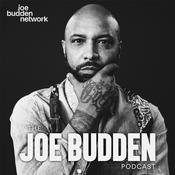More Than a Song - Discovering the Truth of Scripture Hidden in Today's Popular Christian Music
Michelle Nezat

Latest episode
543 episodes
- Send us a text
In this episode of More Than a Song, we use Tim Timmons’ song “Christ In Me” as a launching point to explore what Scripture teaches about the indwelling Holy Spirit, the fruit of the Spirit, and the tension we experience when our lives don’t always align with what we say we believe.
We’ll dig into what it means to suppress the truth, why Paul says this leads to being “futile in our thinking,” and how setting our minds on the Spirit changes everything — from our thoughts to our actions to our worship.
Key Points
What it means to believe something intellectually but not live like it’s true
Hypocrisy vs. life in the Spirit
The promise and presence of the Holy Spirit
Fruit of the Spirit as evidence, not effort
Suppressing truth and the cost of futile thinking
Allowing Truth to resurface — like a beach ball underwater
How setting our minds on the Spirit leads to life and peace
Scriptures Referenced
John 14–16
Acts 2
Romans 1:18–22; 29–31
Romans 2:1
Romans 8:5–11
Galatians 5:17; 22–23
Ephesians 1:13–14
Philippians 4:8
Matthew 5:21–22
BITEs (Bible Interaction Tool Exercises)
Read & Keep on Reading: Read Romans 1–8 in context and note the contrast between suppressing truth and life in the Spirit.
Turn Scripture Into Prayer: Thank God for His Spirit dwelling in you and producing His fruit through you.
Compare & Contrast: Look at Galatians 5 and identify the difference between striving in the flesh and keeping in step with the Spirit.
Additional Resources
Download the free Episode Guide
Lyrics - New Release Today
Tim Timmons shares the heart behind the song "Christ In Me" and shares the song live on Essential Worship Song Sessions - YouTube
Bible Interaction Roadmap Bible Study - videos and assignments that will equip you with habits you can use over and over in your own Bible Study - Learn More
Learn more about my favorite Bible Study Software with a 30-day free trial and links to my favorite Bible resources - Logos Bible Software Affiliate Link
This Week's Challenge
Read John 14-16 and highlight every time Jesus refers to the Holy Spirit and make note of how He describes Him. Head over to Romans 1 and 8 (better yet, read Romans 1-8) and examine what it looks like to suppress truth and the results, and contrast that to what life in the Spirit looks like. Finally, spend some time in Galatians 5 to see what keeping in step with the Spirit looks like—what life looks like when following the Spirit's leading rather than suppressing Him. It should change your prayers, your praise, your thinking, and your life. What if we lived like we believed that the Spirit of Christ dwelled within us?
Change your music. Change your life. Join my free 30-Day Music Challenge. CLICK HERE. - Send us a text
In this special Friday With Friends episode of More Than a Song, I’m joined by worship leader, songwriter, and author Tim Timmons—a voice many of us recognize from songs we’ve sung, but whose story gives those lyrics profound weight.
Tim co-wrote Even If, a song rooted in the kind of faith that trusts God without guaranteed outcomes. That theology isn’t abstract for Tim. Over twenty years ago, he received a terminal cancer diagnosis—and he’s been living out an “even if” faith ever since.
In our conversation, we talk honestly about suffering, grief, and gratitude. We explore how music becomes prayer when words are hard to find, how God’s Word anchors us when faith feels fragile, and how joy and sorrow can coexist without canceling each other out.
If you’ve ever felt worn out by performative faith—or needed permission to bring your real story to Jesus—this conversation is for you.
In this episode, we talk about:
Why Scripture still matters when life doesn’t make sense
How suffering strips faith down to what’s real and lasting
The story behind Tim’s new book, Waking Up Again: A Journey of Grief and Gratitude
Seeing his story portrayed in I Can Only Imagine 2, and what it was like watching that unfold
Holding joy and grief together in everyday life
How music helps us process pain and hope simultaneously as prayers to be sung
Tim’s personal habits for staying engaged with God’s Word
A song recommendation you’ll want on repeat (and we’ll be using it for Monday’s episode!)
Connect with Tim: All the links to all the things are at https://michellenezat.com/tim
Change your music. Change your life. Join my free 30-Day Music Challenge. CLICK HERE. - Send us a text
There are some songs that stay with us—not because they were tied to a moment, but because they put words to a posture of faith we keep coming back to. Even If by MercyMe is one of those songs for me. At its core, it gives voice to a tension we all know well: trusting that God is able… while also learning to remain faithful when He doesn’t act in the way we hope He will.
Key Points
“Even If” by MercyMe gives voice to a deeply biblical kind of faith—a faith that remains even when God doesn’t intervene the way we hope He will.
The song is rooted in Daniel 3, where Shadrach, Meshach, and Abednego declare that God can save them…but even if He doesn’t, they will not bow.
The modern testimony behind the hymn “It Is Well with My Soul” echoes the same posture—sorrow acknowledged, trust unshaken.
This phrase even if names something many believers live daily: trusting God when the outcome is uncertain, painful, or opposite of what we prayed for.
The enemy still whispers the same lie King Nebuchadnezzar did: “What god could save you now?” Recognizing that lie and responding with truth shapes our spiritual resilience.
Scriptures Referenced
Daniel 1–3 – Context of the exile, rise of Daniel and his friends, and the furnace account
Daniel 3:16–18 – “The God we serve is able…but even if…”
Daniel 2:49 – Their roles in Babylon
Daniel 1:17–20 – God-given wisdom and favor
Supporting historical reference from the story behind “It Is Well with My Soul”
BITEs (Bible Interaction Tool Exercises)
Consult a summary or introduction before diving into a book you’re less familiar with (e.g., study Bible intros, Blue Letter Bible, BibleProject).
Read in context – Start in Daniel 1 and read through Daniel 3 to see the full arc of faithfulness.
Consider historical context – Culture, timeline, exile setting, and long-term leadership roles.
Follow cross-references – Explore the broader biblical theme of steadfast trust.
Ask reflection questions – “Where is my even if? Where am I tempted to bow to cultural pressure?”
Additional Resources
Download the free Episode Guide
Lyrics - New Release Today
Blue Letter Bible ESV Introduction to the Book of Daniel
Bible Project Introduction to the Book of Daniel - BibleProject.com
Bible Interaction Roadmap Bible Study - videos and assignments that will equip you with habits you can use over and over in your own Bible Study - Learn More
Learn more about my favorite Bible Study Software with a 30-day free trial and links to my favorite Bible resources - Logos Bible Software Affiliate Link
This Week's Challenge
Read Daniel 3 in context -- meaning start in chapter 1 and read all the way through chapter 3. Consider the historical context of this story. Perhaps even research the historical details further. Ask yourself how you would respond in this situation. Decide today that you will re
Change your music. Change your life. Join my free 30-Day Music Challenge. CLICK HERE. - Send us a text
Is your Bible collecting dust while your phone never leaves your hand? Josiah Queen’s song “Dusty Bibles” hits close to home, doesn’t it? In this episode, we take that convicting image and follow it straight into Scripture—where King Josiah literally rediscovered God’s Word after years of neglect. His response? Humility, repentance, and bold action that changed a nation.
What could happen if we did the same? Join me as we explore Josiah’s story in 2 Kings 22–23 and uncover practical ways to move beyond neglect and let God’s Word transform our lives. Grab your Bible (or your audio app!) and let’s dust it off together.
Key Points
Josiah Queen’s song “Dusty Bibles” paints a vivid picture of neglecting God’s Word in favor of modern distractions.
We explore the story of King Josiah in 2 Kings 22–23, who literally rediscovered a dust-covered scroll and responded with humility, repentance, and action.
Josiah’s example reminds us that interacting with God’s Word leads to transformation—not just for us, but for those around us.
Scriptures Referenced
2 Kings 21–23 – Josiah’s heritage and reforms
2 Chronicles 34–35 – Parallel account of Josiah’s reign
Genesis 7 – Example of tackling hard truths in Scripture
2 Timothy 4:3–4 – Warning against itching ears
James 4:4, 1 Peter 5:5, Proverbs 3:34, Isaiah 66:2 – God’s view on humility
BITEs (Bible Interaction Tool Exercises)
Consult trusted sources – Commentaries or pastors for confirmation
Read in context – Chapters before and after the main text
Follow cross-references – Compare Kings and Chronicles
Listen to Scripture – Audio versions count!
Compare translations – Gain deeper insight
Additional Resources
Download the free Episode Guide
Lyrics - New Release Today
Holman Old Testament Commentary: I & II Kings by Gary Inrig - Amazon Paid Link
Bible Interaction Roadmap Bible Study - videos and assignments that will equip you with habits you can use over and over in your own Bible Study - Learn More
Learn more about my favorite Bible Study Software with a 30-day free trial and links to my favorite Bible resources - Logos Bible Software Affiliate Link
This Week's Challenge
Let’s dust off our Bibles, cleanse our lives of our idols, and let God’s Word be our guide. With that in mind, read Josiah’s narrative in context — read 2 Kings 21-23. Be sure to follow the cross references to 2 Chronicles 34-35. Meditate on Josiah’s interaction with God and His Word. How did he respond? How could we emulate him as we interact with God and Scripture?
Change your music. Change your life. Join my free 30-Day Music Challenge. CLICK HERE. - Send us a text
What happens when you change one word in the title of a classic Christmas hymn? A new perspective and a fresh reason to dive into Scripture. This week’s song, “O Come, All You Unfaithful” by Sovereign Grace Music, invites us to consider the people God included in the Christmas story—and how we are just like them.
This song flips the script on who is invited to come and see what God has done. Instead of calling the faithful to gather in celebration, it beckons the weary, the broken, and the unfaithful—the ones who feel disqualified. That single word change in the title opens the door for us to explore the heart of God revealed in Scripture: a God who draws near to the weak and the waiting, the guilty and the hiding, and offers hope through Christ’s birth.
Key Points
The opening line of this song—“O come, all you unfaithful”—offers a perspective shift worth exploring.
The lyrics list characteristics that mirror real people in the Christmas narrative: Weak and unstable
Barren
Waiting
Weary of praying
Bitter and broken
Fears unspoken
Guilty
Hiding
God included these kinds of people in His redemption story—and He invites us too.
Hosea’s prophecy reminds us of God’s faithfulness despite our unfaithfulness.
We are unfaithful until we are redeemed by the Faithful One—Jesus.
Scriptures Referenced
Matthew 1–2 and Luke 1–2 (Christmas narrative)
Luke 1:5–7; 11–20 (Zechariah and Elizabeth)
Luke 2:8–9; 25; 38 (Shepherds, Simeon, and Anna)
Matthew 1:18–20; 24 (Joseph’s obedience)
James 2:5 (God chooses the poor)
Hosea 2:16–20; 6:3; 6:6–7 (God’s steadfast love and faithfulness)
BITEs (Bible Interaction Tool Exercises)
Read in context—Matthew 1–2 and Luke 1–2
Read aloud—alone or with a friend
Share with a friend—Share Scripture with someone over coffee and Christmas cookies
Compare and contrast—Compare and contrast God's faithfulness with the faithlessness of His people in Hosea’s prophecy
Remember, the people in Scripture were real—just like us
Additional Resources
Download the free Episode Guide
Lyrics - New Release Today
Bible Interaction Roadmap Bible Study - videos and assignments that will equip you with habits you can use over and over in your own Bible Study - Learn More
Learn more about my favorite Bible Study Software with a 30-day free trial and links to my favorite Bible resources - Logos Bible Software Affiliate Link
This Week's Challenge
Read Matthew 1-2 and Luke 1-2. I suggest reading the text aloud alone or with a friend. The story is familiar, and this habit will slow you down. Download the Episode Guide for a list of the human characteristics featured in our song, and look for these characteristics in the real people featured in the Christmas narrative. Read the prophecy of Hosea and compare and contrast the faithfulness of God to the unfaithfulness of His people. Then turn back to the Christmas story—come and see what God has done. Christ is born for you.
Change your music. Change your life. Join my free 30-Day Music Challenge. CLICK HERE.
More Music podcasts
Trending Music podcasts
About More Than a Song - Discovering the Truth of Scripture Hidden in Today's Popular Christian Music
More Than a Song is a bi-weekly podcast dedicated to helping you discover the truth of Scripture hidden in today's popular Christian music. Each episode teaches you to connect portions of God's Word with the songs you're singing along with on the radio to help you meditate on Truths that will transform your way of thinking and, ultimately, your life.
Podcast websiteListen to More Than a Song - Discovering the Truth of Scripture Hidden in Today's Popular Christian Music, DISGRACELAND and many other podcasts from around the world with the radio.net app

Get the free radio.net app
- Stations and podcasts to bookmark
- Stream via Wi-Fi or Bluetooth
- Supports Carplay & Android Auto
- Many other app features
Get the free radio.net app
- Stations and podcasts to bookmark
- Stream via Wi-Fi or Bluetooth
- Supports Carplay & Android Auto
- Many other app features


More Than a Song - Discovering the Truth of Scripture Hidden in Today's Popular Christian Music
Scan code,
download the app,
start listening.
download the app,
start listening.


































